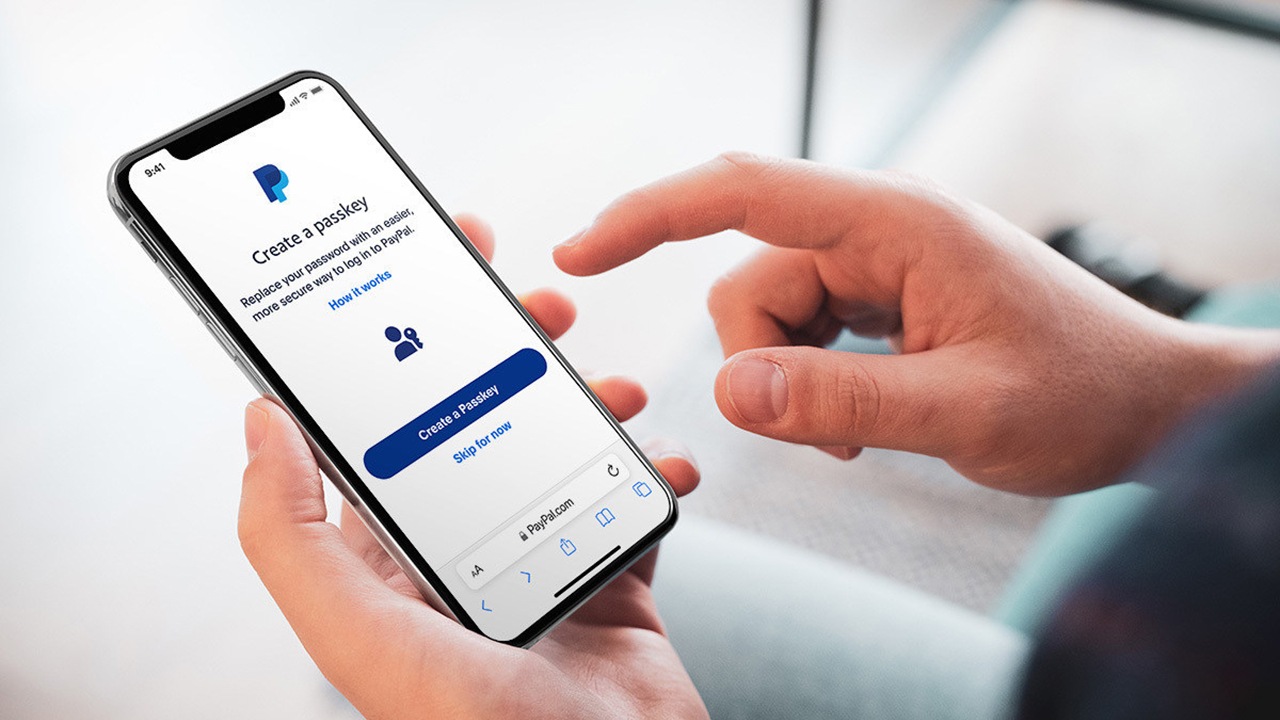
PayPal is introducing an added layer of security to its iOS and Android app in the UK.
Already available Stateside, PayPal's passkeys support enables the app to be opened and accessed using biometric verification or a device password, rather than a user's PayPal password. This makes it quicker to pay for items or see account details, as well as ensuring that your money is safe even if a password is compromised.
Passkeys are an industry-recognised standard that are designed to replace passwords entirely and have been adopted by other services and brands, such as Apple which baked support into iOS 16 last year.
They use "cryptographic key pairs" that work with a number of different verification methods, including fingerprint scanning, facial recognition, a PIN or a pattern, to ensure a device cannot be unlocked or used without the correct digital credentials. Passkeys are also heavily encrypted, so are highly protected from phishing attacks or scams.
The standard was created by the FIDO Alliance, of which PayPal is a founding member, and this and Apple's support is only the start of it. Eventually, we might be able to ditch passwords entirely.
PayPal's passkeys functionality will be rolled out to all UK users on Apple and Android devices in "the coming weeks". It'll be easy to sign up for as long as you have iOS 16, iPadOS 16.1, or macOS Ventura or later. Google device owners will need to have Android 9 or above.
On iPhone or another eligible Apple device, users just need to log into the PayPal website using a Safari browser, which will then give the option to create a passkey. This will then just need to be verified using Face ID or Touch ID. The passkey will be securely synced with the user's iCloud keychain.
On Android, the user must head to the PayPal site via the Chrome browser. This will also give the option to create a passkey, and offer a verification method.
Once created, even the PayPal password should no longer be needed to log in and out of your account.
As passkeys operate on a universal standard, it is hoped that they will be able to be transferred from one device to another in future. Just don't forget your passwords quite yet.







